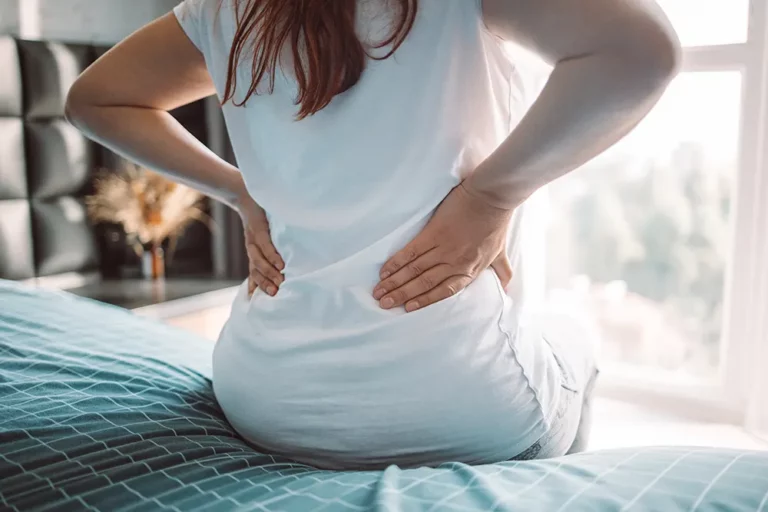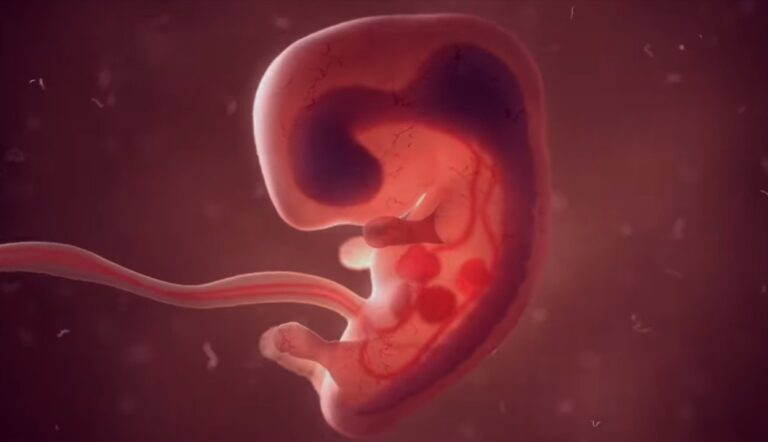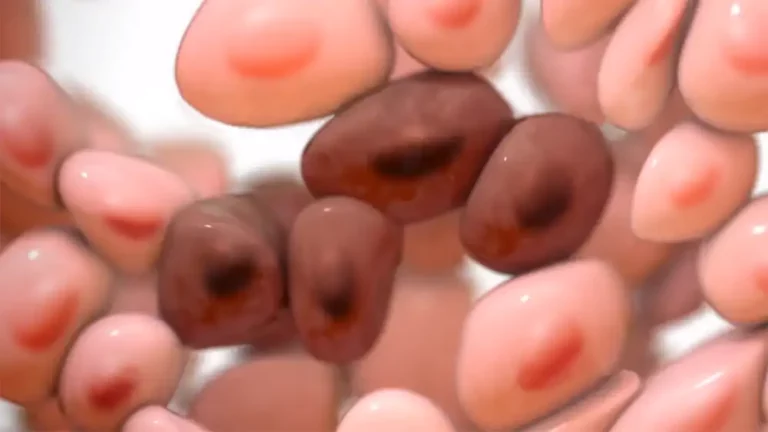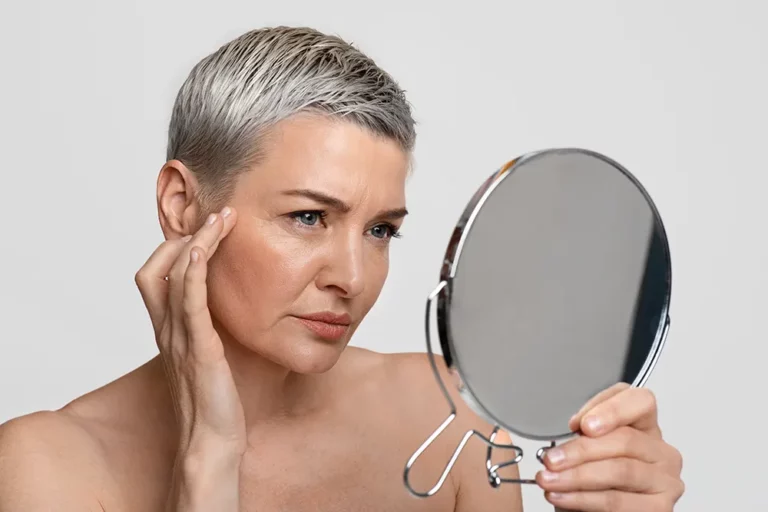Rediscovering Pleasure: Self-Stimulation After Hysterectomy
How hysterectomy affects sex life?
Let’s begin by discussing the various forms of hysterectomy. There are three primary types: total, subtotal and radical hysterectomy. A total hysterectomy eliminates the entire uterus and cervix, whereas a subtotal hysterectomy removes only the upper portion of the uterus. In contrast, a radical hysterectomy involves removing the entire uterus, cervix, and upper portion of the vagina.
So, how do these different types of hysterectomy affect your sex life?
Well, it depends on a few factors. For example, if you have a total hysterectomy , you will no longer be able to become pregnant, which can have an impact on your sexual desire and arousal. Additionally, if your cervix is removed, you may experience vaginal dryness and discomfort during sex.
A subtotal hysterectomy may have less of a negative effect an impact on your sex life, as your cervix is left intact. However, if you have a radical hysterectomy, you may experience more significant changes. Because the upper part of your vagina is removed, you may experience a shorter vagina, which can lead to discomfort during sex. Additionally , because the nerves that supply the clitoris and labia are also removed, you may experience a decrease in sexual sensation.
Understanding Hysterectomy and its Aftermath
One of the most common physical changes that can occur after hysterectomy is a decrease in estrogen levels. Estrogen plays an important role in maintaining vaginal health and its loss can lead to a variety of symptoms, including dryness, itching, and discomfort during sex. These symptoms can significantly affect sexual function and impact a woman’s sexual function and enjoyment. In addition, hysterectomy can also cause nerve damage or loss of sensation in the pelvic region, leading to decreased sexual arousal and difficulty achieving orgasm.
Changes in orgasm: Some women may experience changes in the intensity, duration, or frequency of orgasms after a hysterectomy. This may be because the nerve pathways that allow climax are disturbed or stimulation of the cervix or uterus is lost during intercourse. Some women report lower relationship satisfaction during sex after hysterectomy, while others report more orgasms and higher satisfaction with not having painful sex or experience vaginal bleeding.
Despite these difficulties, there are strategies to control how hysterectomy affects women’s sexual function and health. In order to choose the best course of action for symptoms like vaginal dryness or discomfort, women can consult with their healthcare professionals. They can experiment with new sexual strategies or postures that are cozier following surgery. Counseling or therapy can also assist in addressing psychological issues that may have an effect on sexual function.
Common emotional challenges faced by women after hysterectomy
Sexual dysfunction following hysterectomy can also be caused by psychological causes. Due to the loss of their uterus and reproductive ability, many women may experience anxiety, despair or humiliation. This may result in diminished sexual desire and trouble arousing. A woman’s sex drive, orgasm and capacity to have intimate relations can also be impacted by changes in body image and self-esteem.
It is important for women to understand the potential effects of hysterectomy on sexual health and to seek support and treatment as needed. While it may take time to adjust to these changes, with the right resources and support, most women can regain their sexual health and enjoy fulfilling intimate relationships.
How can self-stimulation help in the recovery process?
Self-stimulation or masturbation can be a way to take care of sexual and health conditions after a hysterectomy, as long as the doctor’s instructions are followed and the healing time is respected.
Some benefits that self-stimulation can bring to your sex life are:
Improve blood flow and vaginal elasticity: Self-stimulation can help prevent or reduce vaginal dryness and maintain natural lubrication. It can also promote healing by stimulating blood flow in the pelvic area.
Explore sexual pleasure: self-stimulation can help a woman to better understand her body and her erogenous zones, as well as discover new ways to reach orgasm. Some women may lose the ability to orgasm from cervical or uterine stimulation after a hysterectomy, but may find other avenues of pleasure such as clitoral, nipple, or G-spot stimulation. mood, reduce stress and increase self-esteem.
Prepare the body for sexual intercourse: Self-stimulation can be a way to resume sexual activity after a hysterectomy, as long as healing time of entire uterus is respected and vaginal penetration is avoided until cleared by the doctor. Self-stimulation can help a woman regain sexual desire, lubricate the vagina, and relax the pelvic muscles to facilitate sexual intercourse with her partner.
Rediscovering Intimacy through Self-Stimulation
What is self-stimulation?
Self-stimulation, also known as autoeroticism or onanism, is a complex and multifaceted aspect of female sexuality. It involves a variety of behaviors and techniques, ranging from manual stimulation of the clitoris or vagina to the use of sex toys, fantasies or pornography. Despite its widespread popularity and historical significance, self-stimulation remains somewhat stigmatized and under-researched in many cultures.
How self-stimulation can benefit your sexual function
The benefits of self-stimulation are numerous and varied. On a physical level, it can lead to increased blood flow and muscle tone in the genital area, which can improve overall sexual function and pleasure. It can also offer stress relief, reduce anxiety, and promote relaxation and restful sleep. On a mental and emotional level, self-stimulation can help women gain a greater understanding of their own bodies and sexual desires, leading to greater sexual confidence and satisfaction in both solo and partnered sexual experiences. Self-stimulation can also help women explore and experiment with different sexual fantasies or fetishes in a safe and non-judgmental environment.

Common myths and misconceptions surrounding self-stimulation
One common myth is that self-stimulation is a dirty or shameful sex act. This couldn’t be further from the truth. Self sexual stimulation, is a natural and healthy aspect of human sexuality and there is nothing wrong or shameful about it.
Another myth is that self stimulation is only for individuals who are unable to find a sexual partner. This couldn’t be further from the truth. In fact, many women who are in relationships still engage in self-stimulation as a way to explore their own bodies and desires. Women can learn a lot about their sexual preferences and likes and dislikes through self-stimulation, which can ultimately boost their sexual confidence and happiness.
The idea that self-stimulation can result in issues with one’s physical or mental health is the third myth surrounding it. That is untrue. In reality, studies have shown that self-stimulation has a wide range of health advantages, such as lowering stress and anxiety, enhancing sleep, and producing endorphins that can improve mood and lessen pain. Self-stimulation can also assist women who have trouble inducing orgasm during sexual activity to do so more frequently and readily.
Preparing for Self-Stimulation
When to start?
The answer isn’t straightforward, as many factors can impact your recovery and sexual sensation. So, let’s delve into the details.
Firstly, it’s important to get clearance from your doctor before engaging in any sexual activity, including self-stimulation. Typically, you’ll have a follow-up appointment around six weeks after the surgery to assess your healing progress. During this visit, you can discuss with your doctor when it’s safe to start self-stimulating again.
However, recovery time varies from person to person and is affected by several factors. For example, if your hysterectomy was more extensive or complicated, you may require more time to heal. Additionally, if you have other medical conditions or are taking medications that affect your libido or vaginal health, you may need to adjust your self stimulation routine accordingly.
Precautions and safety measures for a successful experience
Once you get the green light to resume self-stimulation, it’s crucial to take certain precautions to ensure your safety and comfort. For instance, make sure to use clean, sanitized sex toys or other instruments and avoid putting pressure on your abdomen or pelvic area. You may also need to experiment with different positions or techniques to find what works best for you.
It’s worth noting that self-stimulation can be an excellent way to reconnect with your body and feel comfortable with your sex life after a hysterectomy. However, it’s crucial to be patient and take things slow. Don’t push yourself too hard or feel discouraged if it takes time to feel comfortable or achieve orgasm. With time, self-stimulation can be an enjoyable and fulfilling experience that contributes to your overall sexual and emotional well-being.
Techniques for Self-Stimulation
Different self-stimulation techniques for women after hysterectomy
The clitoris is an extremely sensitive area of the female anatomy that can be stimulated with the fingers, a vibrator or other sex devices. Experimenting with various techniques and equipment can help you determine what works best.
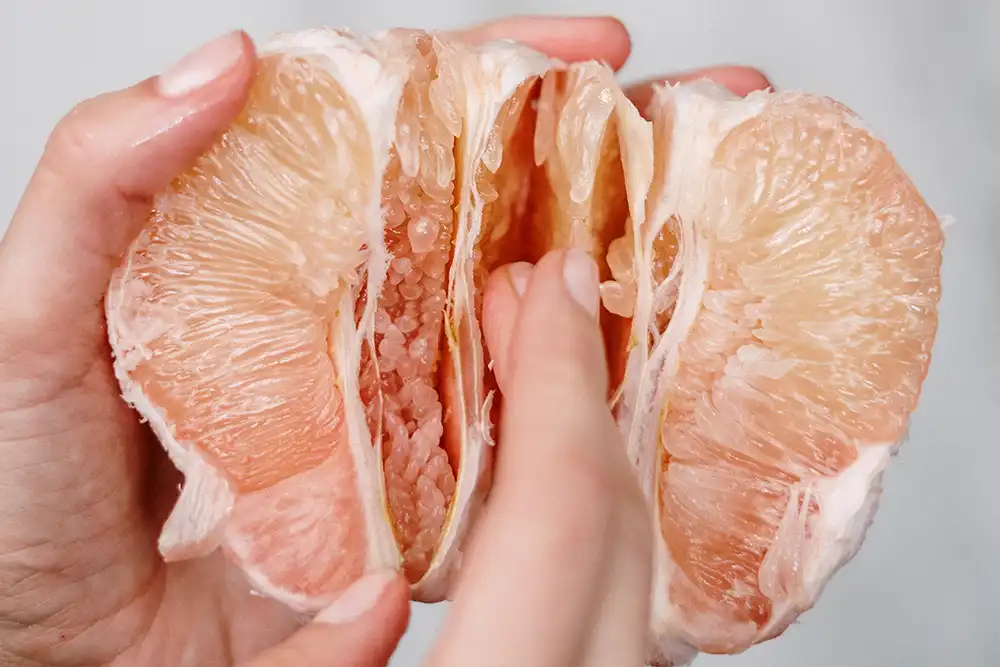
Some women report that stimulating the G-spot (located on the front vaginal wall) results in intense arousal and even squirting. You can explore this area using a curved vibrator or your fingertips.
Anal play: Anal stimulation can be incredibly pleasurable for some women. You can use a butt plug or anal beads to explore this area or incorporate anal stimulation into your masturbation routine.
Mindfulness: Sometimes simply focusing on your breath and the sensations in your body can be enough to bring about feelings of pleasure and relaxation. Try incorporating mindfulness techniques into your self-stimulation routine.
Managing Physical Challenges During sexual activity
Coping with pain and discomfort during sexual activity
Vaginal Dryness: After a hysterectomy, women may feel vaginal dryness, making sexual activity uncomfortable or painful. This is because the surgery can cause estrogen levels to decrease, making the vaginal fluid go down. Women can use vaginal lubricants or creams to take care of vaginal dryness. These products can help make sexual action less irritating and more comfortable by reducing friction.
Pelvic Pain: Women who have undergone a hysterectomy may experience pelvic pain during sexual activity. This can occur due to scar tissue or nerve damage from the surgery. To manage pelvic pain, women can try different sexual positions that may be more comfortable. For example, lying on the side or using pillows for support can help to reduce pelvic pain during sexual activity.
Loss of Libido: Some women may experience a loss of libido after undergoing a hysterectomy. This can occur due to the physical changes that result from the surgery , as well as the emotional stress of the procedure. To manage a loss of libido, women can try to focus on nonsexual intimacy, such as cuddling or holding hands. This can help to strengthen the emotional connection between partners and improve sexual health over time.
Incontinence: Women who have had a hysterectomy may experience incontinence, which can make sexual behavior uncomfortable or even embarrassing. Kegels and other movements for the pelvic floor can help women deal with incontinence. These movements can help build up the muscles that control urination and make it easier to keep your bladder in check when you’re sexually active.
Changes in Orgasm: After a hysterectomy, women may experience changes in orgasm, such as difficulty achieving orgasm or a decrease in the intensity of orgasms. This occurs due to the physical and hormonal changes that result from the surgery. To manage changes in orgasm, women can try new sexual techniques or explore different erogenous zones. This can help to enhance sexual pleasure and improve overall sexual health.
Tips for managing post-surgery incontinence and other challenges
Here are some suggestions for coping with incontinence and other difficulties after a hysterectomy:
Pelvic Floor Exercises: These exercises assist in strengthening pelvic muscles and enhancing bladder control. They can be performed at home or with the assistance of a physical therapist.
Kegel Exercises: Kegel exercises are a form of pelvic floor exercise that can improve sexual function and bladder control.
Stay Hydrated: Staying hydrated is vital to your overall health, and it can also help you manage incontinence after surgery. Water consumption can help you flush out impurities and maintain a healthy bladder.
Certain foods can aggravate your bladder and exacerbate your incontinence. These include alcohol, stimulants and spicy foods. Avoid these situations as much as feasible.
Utilize Incontinence Products: Incontinence products, such as pads, liners and disposable underwear, can help you manage incontinence and remain comfortable all day.
Emotional Challenges and Self-Stimulation
Tips for managing stress, anxiety, and depression during self-stimulation
One strategy for managing stress and anxiety during self-stimulation is to engage in activities that promote relaxation and mindfulness. This can include deep breathing exercises, meditation or yoga. These practices can help you stay present at the moment and not get caught up in negative thoughts or worries.
It’s also important to communicate with your partner if you have one. Letting them know how you’re feeling and what you’re comfortable with can help reduce any anxiety or stress you may be feeling and make the experience more enjoyable for both of you. Additionally, if you don’t feel comfortable or ready for self stimulation yet, it’s important to honor your feelings and give yourself time to heal.
In addition to relaxation techniques and communication with your partner, it’s also important to prioritize self care during this time. This can include getting enough rest, eating a healthy diet and engaging in activities you enjoy. It’s important to take care of yourself both physically and emotionally, as this can help you manage stress, anxiety and depression more effectively.
Tips for a satisfying and mutually fulfilling sex life after hysterectomy
One tip is to take things slow and be patient with yourself and your partner. You may need to experiment with different positions and techniques to find what feels comfortable and pleasurable for both of you.
Many women experience vaginal dryness after surgery, which can lead to discomfort during intercourse. Using a water based lubricant can help increase comfort and pleasure and may reduce the risk of injury or irritation.
Put your partner’s communication first. Be forthright and honest about your wants and desires, and don’t be hesitant to try out various positions and methods to see what works best for you. Remember that following your operation, your spouse can also be dealing with their own thoughts and feelings, so be sure to check in with them frequently and provide support as required.
Foreplay is yet another crucial element. Kissing, touching, and other intimate activities might assist raise desire and encourage lubrication, which could lessen pain during sexual activity. Spend some time together developing intimacy and enjoyment.
Long-Term Benefits of Self-Stimulation
Stress and anxiety can be decreased, which is one of self-stimulation’s most important advantages. Your body releases a complex cascade of neurochemicals during self-stimulation, including endorphins, dopamine and oxytocin. These neurochemicals can help control stress hormones and foster sensations of relaxation and well-being. For people who battle with anxiety or problems linked to stress, this can be especially helpful.
Self-stimulation has benefits for sexual health in addition to lowering stress and anxiety. Regular self-stimulation has been found to improve sexual function and lower the risk of erectile dysfunction and other sexual health problems by increasing blood flow to the genitals. Additionally, self-stimulation can help people gain more sexual confidence and enhance their ability to express their preferences and wishes to a partner, which will result in more pleasant sexual experiences.
Self-stimulation can also be a valuable tool for self-exploration and self-discovery. By taking the time to explore sexual sensation in their own bodies and discover what feels good, individuals can gain a greater understanding of their own sexual preferences and desires. This can lead to more satisfying sexual experiences with a partner , as well as a greater sense of self-awareness and self-confidence.
FAQs
Is it safe to self-stimulate after a hysterectomy?
Yes, self-stimulation is often safe after a hysterectomy. However, you should always abide by your doctor’s advice and hold off on any sexual activity, including self-stimulation, until your body has completely healed. Normally, this takes about six weeks to eight weeks, although it can take a few weeks longer or shorter depending on the person and the kind of hysterectomy you had.
Will self-stimulation feel different after a hysterectomy?
After a hysterectomy, some women claim that sexual response and self-stimulation feels different, while others claim to have seen no difference. Numerous elements, including alterations in hormone levels, modifications to the pelvic region’s structure and psychological elements, may contribute to this. If you do notice a difference in sexual response, it can take some time for you to get used to it and figure out what makes you happy.
Can self-stimulation cause any damage or complications after a hysterectomy?
In general, self-stimulation does not cause any damage or complications after a hysterectomy. However, if you experience any pain, vaginal bleeding or unusual symptoms during or after self-stimulation, you should contact your doctor. Additionally, if you have any medical conditions or symptoms that affect your pelvic area , such as endometriosis or pelvic inflammatory disease, you should discuss self-stimulation with your doctor to ensure it is safe for you.
Are there any positions or techniques that are recommended or should be avoided after a hysterectomy?
There are no specific positions or techniques that are recommended or should be avoided after a hysterectomy. However , you may find that some positions or techniques are more comfortable or pleasurable than others, depending on your individual anatomy and preferences. Experiment with different positions and techniques to find what feels good for you.
Can self-stimulation help with vaginal dryness or other sexual issues after a hysterectomy?
Self-stimulation can help with vaginal dryness and other sexual issues after a hysterectomy by increasing blood flow to the pelvic area and promoting vaginal lubrication. Additionally, self-stimulation can help you explore your body and learn what feels pleasurable for you, which can improve your overall sex life.
